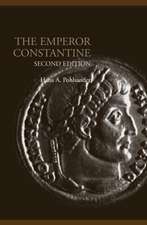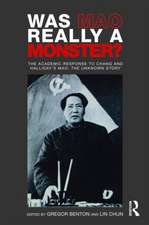Lord Salisbury
Autor Dr E David Steeleen Limba Engleză Hardback – 22 iul 1999
| Toate formatele și edițiile | Preț | Express |
|---|---|---|
| Paperback (2) | 384.16 lei 6-8 săpt. | |
| Taylor & Francis – mar 2001 | 384.16 lei 6-8 săpt. | |
| Taylor & Francis – 11 aug 2015 | 424.71 lei 6-8 săpt. | |
| Hardback (2) | 1000.27 lei 6-8 săpt. | |
| Taylor & Francis – 19 ian 2017 | 1000.27 lei 6-8 săpt. | |
| Taylor & Francis – 22 iul 1999 | 1016.06 lei 6-8 săpt. |
Preț: 1016.06 lei
Preț vechi: 1239.11 lei
-18% Nou
Puncte Express: 1524
Preț estimativ în valută:
194.45€ • 202.26$ • 160.53£
194.45€ • 202.26$ • 160.53£
Carte tipărită la comandă
Livrare economică 15-29 aprilie
Preluare comenzi: 021 569.72.76
Specificații
ISBN-13: 9780415239479
ISBN-10: 0415239478
Pagini: 472
Dimensiuni: 156 x 234 x 25 mm
Greutate: 0.91 kg
Ediția:1
Editura: Taylor & Francis
Colecția Routledge
Locul publicării:Oxford, United Kingdom
ISBN-10: 0415239478
Pagini: 472
Dimensiuni: 156 x 234 x 25 mm
Greutate: 0.91 kg
Ediția:1
Editura: Taylor & Francis
Colecția Routledge
Locul publicării:Oxford, United Kingdom
Cuprins
Introduction 1 Formative Influences 2 The Rising Politician 3 The Second Reform Act 4 The Conscience of the Party 5 The Making of a Statesman 6 The Eastern Question and the Foreign Office 7 A Leader in Waiting 8 The First Premiership and Ireland, 1885–6 9 The New Conservatism in Practice 10 European Security and Imperial Expansion 11 The Politics of Opposition 1892–5 12 Unionist Democracy, 1895–1900 13 The System under Strain: Diplomacy and War, 1895–1900 14 Anti-climax
Descriere
Descriere de la o altă ediție sau format:
This book presents a study of Lord Salisbury, British prime minister in the late nineteenth century and early twentieth century, whose political philosophy was reactionary and defeatist, and who is remembered for an irony that was wounding as well as diverting.
This book presents a study of Lord Salisbury, British prime minister in the late nineteenth century and early twentieth century, whose political philosophy was reactionary and defeatist, and who is remembered for an irony that was wounding as well as diverting.


















